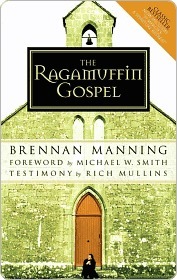More on this book
Community
Kindle Notes & Highlights
Read between
March 18 - April 26, 2022
The Bible is the love story of God with His people. God calls, pursues, forgives, and heals. Our response to His love is itself His gift.
The love of God is simply unimaginable. “So that Christ may live in your hearts through faith, and then, planted in love and built on love, with all God’s holy people you will have the strength to grasp the breadth and the length, the height and the depth; so that, knowing the love of Christ, which is beyond knowledge, you may be filled with the utter fullness of God” (Ephesians 3:17–19).
Let go of impoverished, circumscribed, and finite perceptions of God. The love of Christ is beyond all knowledge, beyond anything we can intellectualize or imagine. It is not a mild benevolence but a consuming fire. Jesus is so unbearably forgiving, so infinitely patient, and so unendingly loving that He provides us with the resources we need to live lives of gracious response.
Love has its own exigencies. It weighs and counts nothing but expects everything. Perhaps that explains our reluctance to risk. We know only too well that the gospel of grace is an irresistible call to love the same way. No wonder so many of us elect to surrender our souls to rules rather than to living in union with Love.
No greater sinners exist than those so-called Christians who disfigure the face of God, mutilate the gospel of grace, and intimidate others through fear. They corrupt the essential nature of Christianity.
Thereafter, the only power Peter had was Jesus’ love for him. He told and retold the story of his own unfaithfulness and how Jesus touched him. When he proclaimed the gospel of grace, he preached from his weakness the power of God.
that Christianity is not primarily a moral code but a grace-laden mystery; it is not essentially a philosophy of love but a love affair; it is not keeping rules with clenched fists but receiving a gift with open hands.
They seek to intimidate us, make us afraid, file through their exclusive pathway of righteousness, and control rather than liberate our lives. Their perverted spirit of legalism would cripple the human spirit and send us sagging under great spools of rules and regulations. The thrilling quality of their dedication—zealotry is always impressive—obscures the fact that they accept the gospel in theory and deny it in practice.
In every age the church is saved by ragamuffins with an unerring discernment of spirits.
Ragamuffins do not complain about the feeble preaching and the lifeless worship of their local church. They are happy to have a place to go where they can mingle with other beggars at the door of God’s mercy.
ragamuffins laugh at their own vanity for wanting to be noticed and for being unnoticeable.
I think it’s the same with our love for God. Loving faith—handing our lives over to God in complete trust—can’t happen when we hold back something out of fear, either the fear of punishment or the fear that the whole thing is a sham.
But although ragamuffins may be softhearted, they are hard-headed. They do not live in a dreamy, spaced-out state, pontificating about the victorious Christian life. They form the mendicant church, not the church triumphal. Acknowledging the reality of their own impoverished lives, they know they cannot survive without the divine dole for their daily bread. Their security rests in having no security.
Perhaps the supreme achievement of the Holy Spirit in the life of ragamuffins is the miraculous movement from self-rejection to self-acceptance. It is not based on therapy or the power of positive thinking; it is anchored in their personal experience of the acceptance of Jesus Christ. They are not saints, but they seek spiritual growth. They accept counsel and constructive criticism with ease. They stumble often, but they do not spend endless hours in self-recrimination. They quickly repent, offering the broken moment to the Lord. Their past has been crucified with Christ and no longer exists,
...more
I harbor one legitimate fear: Having been given a seat at the wedding feast, the thought of ever going back into the misery and filth—the cold and the darkness of the highways and hedges, the streets and the alleys of a self-centered life—fills me with holy dread. From the depth of my heart I pray, in the words of St. Augustine, “Lord Jesus, don’t let me lie when I say that I love you…and protect me, for today I could betray you.”
Swimming in the merciful love of the redeeming Christ, we are free to laugh at the tendency to assume spiritual superiority—in ourselves. We are free to extend to others the mercy we have received.
compassion becomes a tad easier if you are conscientious in taking your own inventory rather than someone else’s.


